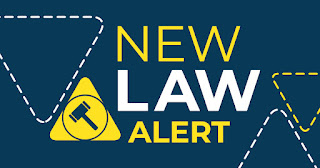On February 16, 2024, the Financial Crimes Enforcement Network (FinCEN) proposed a new rule to mandate certain individuals involved in real estate closings and settlements to report and maintain records on non-financed transfers of residential real property to specific legal entities and trusts nationwide. This proposed rule is called the Anti-Money Laundering Regulations for Residential Real Estate Transfers.
Reporting persons ("RP") include, but are not limited, to real estate agents, title insurance companies, settlement agents, and attorneys. There is a “cascading” approach, based on the function performed by the person in the real estate closing and settlement that determines which RP has the burden to report. Regardless, real estate professionals would also have the option to designate a reporting person from among those in the cascade by agreement.
RPs are required to report:
- The names and addresses of reporting persons, transferee entities, transferee trusts, signing individuals, transferors, and any beneficial owners.
- The citizenship details for all beneficial owners of transferee entities or transferee trusts.
- The unique identifiers, such as IRS Taxpayer Identification Numbers (TINs), for individuals and entities involved in the transactions.
- A description of the capacity in which the signing individual is authorized to act, such as legal representative or employee.
- The details about the total consideration paid for the property, method of payment, accounts used, and the names of payors if different from the transferee entity or trust.
- The address of the property and a legal description, such as section, lot, and block.
RPs must e-file the report with FinCEN within 30 calendar days after the transferee entity or transferee trust receives the ownership interest in the residential real property. RPs must maintain a copy of the report, any certifications regarding beneficial ownership, and any designation agreements for five years from the date of the report filing.
Note that transfers of real property to individuals, as opposed to an entity (LLC, Corp, LLP) are not covered by this proposed rule.
If this rule is adopted the effective date will be one year from the date the final rule is issued. This time period is to allow real estate professionals to have sufficient time to review and prepare for the implementation of the reporting requirements.
Written comments about this proposed rule are being accepted and must be submitted on or before April 16, 2024 by utilizing this link.























